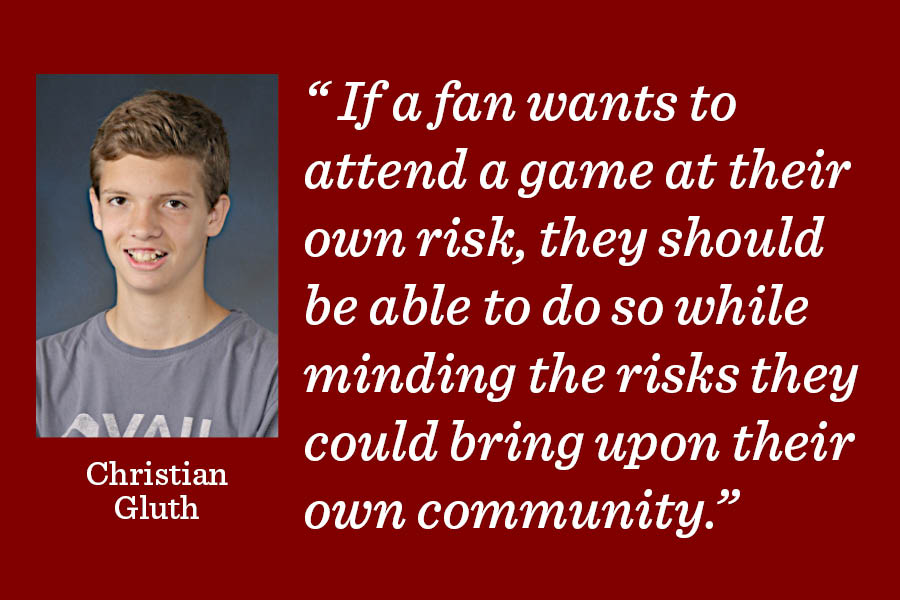‘Friendly Confines,’ not confined to home: It’s time for fans to return to stands
Fans should be allowed to attend games if they are willing to face the risk according to sports editor Christian Gluth.
June 2, 2020
Reruns and documentaries dominate sports broadcasting networks. Even the few sports that have begun again have hosted events with no fans, which have provided much less excitement.
While most sports fans eagerly await the re-opening of the majority of American sports after an unforeseen drought, different organizations are questioning how to restart safely due to the coronavirus pandemic with the biggest worry preventing the spread of the virus, so hospitals can handle cases efficiently. Once the health system has enough resources to handle the pandemic, sports organizations need to open up with limited capacity.
Fans aren’t forced to attend games. To attend a game, fans must pay for their own ticket. If they are at higher risk or feel more comfortable within the confines of their own home, nothing is forcing fans to attend. Because of this, fans carry the responsibility as to whether they should spectate, not the host organizations nor the government. As long as the health system is able to sustain the impact of the virus there is no threat to our hospitals. That’s why the stay-at-home order was issued in the first place — not to stop the virus but to slow it down to allow the health care system to adjust. Once this is overcome, the only challenge is moral and comes down to our own decision making. If a fan wants to attend a game at their own risk, they should be able to do so while minding the risks they could bring upon their own community.
One may think that this would be a selfish course of action to bring back athletes, much less fans, so quickly rather than to wait until the pandemic has cleared up. This isn’t true, however, since sports teams, stadiums and related organizations have and will continue to suffer financially without operation. Most notably, the cancellation of the NCAA Division I Men’s Basketball Tournament cost the NCAA a majority of what they normally gain — in 2019 it made $933 million from March Madness, which was about 75% of that year’s earnings. The college football season that is supposed to begin in early fall is typically the most profitable for individual schools, but college sports cannot afford another loss. According to ESPN, the absence of a college football season would cost about $4 billion across athletic departments and would “forever alter college-level sports.” Ticket sales and TV contracts bring in nearly all revenue for the Football Bowl Subdivision of college football as well — they accounted for almost 50% of the more than $8 billion generated in 2018, according to the Knight Commission.
It’s pretty simple to see that college and professional athletics logistically cannot continue to wait much longer to restart. Without ticket sales, the organizations will lose a large amount of revenue they usually generate, and they don’t have a strong reason to leave out fans as long as the health care system is adequate. Events just don’t have the same energy when the crowd isn’t involved — why prevent them if we don’t have to?












